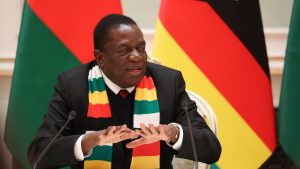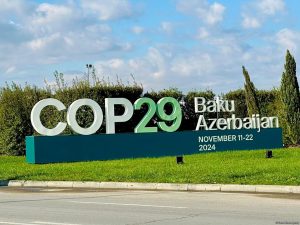

GLOBAL leaders converge in Baku, Azerbaijan on November 11-22, 2024 for the 29th Conference of the Parties (COP29) on Climate Change. Running under the theme ‘Climate Action’, and basing on the attendance for COP28 in Dubai, which attracted 85,000 participants, including more than 150 heads of state and government, COP29 is an opportunity for world leaders to prioritise Africa.
In his COP28 address, President Emmerson Mnangagwa said “the current generation of leaders must be remembered as those who took bold and resolute action to preserve our planet”. Rightly so, and his sentiments were also echoed by most African leaders as developing countries continue to carry the brunt of climate disasters they did not cause.
The unfolding negative socio-economic impacts of climate change require stronger international cooperation to prevent, educate, and respond to climate change induced disasters such as droughts, floods and wildfires, among others. It is against this backdrop that deliberations at COP29 must take into consideration historical global imbalances and carbon footprints to prioritise Africa.

President Emmerson Mnangagwa
It is exciting to note that the host country, Azerbaijan, has made significant strides in the area of green energy.
“Being elected by unanimous decision as the host country for COP29 is really a big honour for us. We consider it as a sign of respect from the international community to Azerbaijan and what we are doing, in particular, in the area of green energy,” Ilham Aliyev, President of the Republic of Azerbaijan, was quoted saying.
Africa enjoys an abundance of solar resources, with the continent boasting 60 percent of the world’s best solar resources, yet it only accounts for one percent of installed solar photovoltaic (PV) capacity globally.
The disparity presents an opportunity for global leaders to prioritise Africa on climate funding, an intervention that will not only harness her solar energy generation potential, but also drive sustainable economic growth and eradicate hunger and poverty – key elements on the United Nations agenda on Sustainable Development Goals (SDGs).
The above proposition for Africa is a challenge to world leaders at the Baku gathering and buttresses the Zimbabwe government’s priorities for COP29 as expressed in a position paper prepared by the Ministry of Environment, Climate and Wildlife.
Coincidentally, among the key issues in Zimbabwe’s position paper is the consideration of Africa’s special needs and special circumstances.
Poignantly, the latest Intergovernmental Panel on Climate Change for the United Nations Framework Convention on Climate Change (UNFCCC) reported that Africa still stands to be impacted more than any other continent by the adverse impact of climate change, in the process limiting its economic and development trajectory while the continent only contributes less than four percent of the total global emissions, another key insight from the position paper.
 Informed by the above, I argue that it would be progressive on the part of COP29 and the United Nations at large to introduce compensatory interventions linked to carbon emission footprints for each continent, intercessions that will unlock financial value from developed economies to promote Africa’s climate action efforts for the benefit of future generations in line with the global sustainable development agenda.
Informed by the above, I argue that it would be progressive on the part of COP29 and the United Nations at large to introduce compensatory interventions linked to carbon emission footprints for each continent, intercessions that will unlock financial value from developed economies to promote Africa’s climate action efforts for the benefit of future generations in line with the global sustainable development agenda.
These interventions, if adopted, will go a long way in unlocking financial value for developing economies to address the elephant in the room – reducing the high carbon emission in the built environment.
According to UNEP, the built environment is responsible for approximately 37 percent of energy and process related global carbon emissions, which is around 14.4 metric gigatons of carbon dioxide equivalent annually. As active members of the World Green Building Council, the Green Building Council of Zimbabwe believes that prioritising Africa at COP29 will unlock bankable opportunities for the reduction of carbon emissions in the developing economies, particularly within the high-carbon emitting built environment through the adoption of green building standards, and the promotion of sustainable economic development.
As the COP29 UN Climate Change Conference roars to life in Baku, Azerbaijan, Alkebulan is calling – “Let us prioritise Africa”.
Dr Juru is chairperson of the Green Building Council of Zimbabwe. He is also the founder and chief executive of Integrated Properties. He can be contacted at 0773805000 or by email mejuru@intpro.co.zw